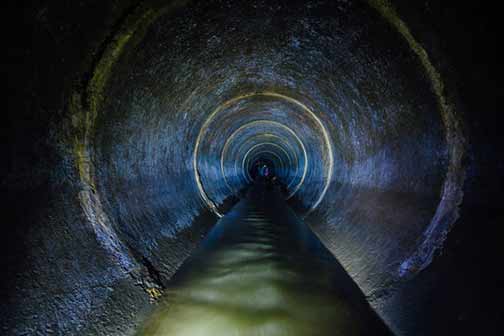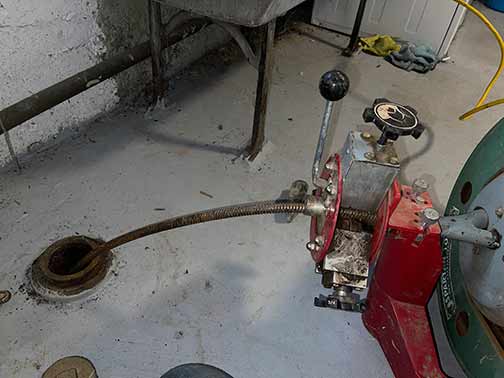
As a homeowner, encountering a blocked sewer line can be a dreaded experience. It’s not just an inconvenience; sewer blockages can lead to significant damage to your property and costly repairs if not addressed swiftly. Below we will get into everything you need to know about sewer rodding, from recognizing the signs of a blockage to understanding the rodding process and taking proactive measures to maintain a healthy sewer system. This information will empower you to make informed decisions and protect your home from potential sewer related issues.
Recognizing the Signs of Sewer Blockage: Indicators Homeowners Should Watch For
Early detection of sewer blockages can save you time, money, and stress. Here are some key indicators that suggest you may have a sewer blockage:
1. Slow Draining Fixtures: If you notice that your sinks, tubs, or toilets are draining more slowly than usual, it could be a sign of a blockage in the sewer line. Pay attention to multiple fixtures draining slowly, as this often indicates a main sewer line problem.
2. Gurgling Sounds: Unusual noises coming from your plumbing, such as gurgling or bubbling sounds, may indicate trapped air in the pipes due to a blockage.
3. Frequent Toilet Backups: Toilets that frequently back up, even after plunging, can be a sign of a more serious sewer line issue.
4. Foul Odors: Unpleasant smells emanating from drains or around your property can indicate a sewer blockage. This is typically caused by sewage not properly flowing through the pipes.
5. Water Backing Up: If water backs up into your sinks, tubs, or floor drains, especially after using other plumbing fixtures, it’s a strong indication of a sewer backup emergency in the works.
Understanding Sewer Rodding: A Deep Dive into the Process
Sewer rodding, also known as drain snaking, is a method used to clear blockages in sewer lines. Here’s a step-by-step look into the sewer rodding process:
Step 1: Inspection and Diagnosis: Before any rodding begins, a professional plumber will typically conduct a thorough inspection of the sewer line using a camera. This helps identify the exact location and nature of the blockage.
Step 2: Choosing the Right Equipment: Depending on the type and severity of the blockage, the plumber will select the appropriate rodding tool. This may include various sizes and types of rods or augers designed to break through or remove the obstruction.
Step 3: Inserting the Rod: The rodding tool is carefully inserted into the sewer cleanout or an accessible drain opening. The plumber will then extend the rod into the sewer line, navigating through any curves or bends.
Step 4: Breaking Through the Blockage: Once the rod reaches the blockage, the plumber will use a combination of pushing, twisting, and rotating motions to break up or dislodge the obstruction. In some cases, this may involve multiple passes to ensure complete removal.
Step 5: Flushing the Line: After the blockage is cleared, the plumber will flush the sewer line with water to ensure that any remaining debris is washed away. This helps restore proper flow and prevent future blockages.
Step 6: Final Inspection: A final camera inspection may be conducted to confirm that the blockage has been fully cleared and to assess the overall condition of the sewer line.

The rodding tool is carefully inserted into the sewer cleanout or an accessible drain opening. The plumber will then extend the rod into the sewer line, navigating through any curves or bends.
Common Causes of Sewer Blockages: What Homeowners Should Be Aware Of
Understanding the common causes of sewer blockages can help homeowners take preventive measures. Here are some of the most frequent culprits:
- Tree Roots: Tree roots are a major cause of sewer blockages. They can infiltrate sewer lines through small cracks or joints, growing and expanding over time, eventually causing significant blockages.
- Grease and Fat: Cooking grease and fat poured down the drain can solidify and accumulate in the pipes, leading to blockages. This is commonly seen in kitchen sinks.
- Foreign Objects: Items such as sanitary products, wipes, paper towels, and other non-flushable materials can easily cause blockages when they enter the sewer system.
- Flushed Debris: Anything other than human waste and toilet paper flushed down the toilet can contribute to blockages. This includes items like dental floss, hair, and small toys.
- Broken or Collapsed Pipes: Aging or damaged sewer pipes can break or collapse, leading to partial or complete blockages. This is often due to shifting soil, ground movement, or wear and tear over time.
Preventive Maintenance Tips for Homeowners: Keeping Your Sewer System Healthy
Proactive maintenance can help prevent sewer blockages and prolong the life of your sewer system. Here are some tips for homeowners:
- Regular Inspections: Schedule regular inspections of your sewer line by a professional plumber. Early detection of potential issues can prevent major blockages and costly repairs.
- Proper Disposal Methods: Avoid pouring grease, fat, or oil down the drains. Use a separate container for grease disposal and throw it in the trash. Additionally, only flush human waste and toilet paper down the toilet.
- Tree Root Management: Be mindful of tree planting near sewer lines. Opt for trees with less aggressive root systems and consider having root barriers installed to prevent infiltration.
- Install Drain Strainers: Use drain strainers or screens in sinks, showers, and tubs to catch hair, food particles, and other debris before they enter the pipes.
- Chemical-Free Cleaning: Avoid using harsh chemical drain cleaners, as they can damage your pipes over time. Instead, opt for natural alternatives or contact a professional for safe and effective cleaning methods.
The Role of Professional Plumbers: Why Expertise Matters
Sewer rodding and maintenance are tasks that often require professional expertise. Here’s why relying on professional plumbers is crucial:
- Experience and Knowledge: Professional plumbers have the experience and knowledge to accurately diagnose and address sewer blockages. They are equipped with the right tools and techniques to handle a wide range of issues.
- Preventing Further Damage: Attempting to clear a blockage yourself can sometimes worsen the problem or cause damage to your pipes. Professionals can perform the task safely and effectively, minimizing the risk of further damage.
- Advanced Equipment: Plumbers have access to advanced equipment, such as sewer cameras and specialized rodding tools, which allow them to identify and resolve blockages more efficiently.
- Comprehensive Solutions: Professionals can provide comprehensive solutions, including repairing damaged sewer lines, addressing root infiltration, and advising on preventive measures to reduce the likelihood of future blockages.

Relying on professional plumbers for expertise and timely interventions can ensure that any sewer blockages are addressed safely and effectively.
Dealing with Emergency Sewer Blockages: Steps to Take
Encountering a sewer blockage can be an urgent and stressful situation. Here are some immediate steps to take if you suspect a blockage:
1. Stop Using Water: Immediately cease all water use in your home to prevent further backup and potential damage. This includes avoiding the use of sinks, toilets, and appliances like dishwashers and washing machines.
2. Call a Professional: Contact a professional plumber right away to inspect and address the blockage. Do not attempt to clear the blockage yourself, as this can lead to further complications.
3. Avoid Chemical Drain Cleaners: Refrain from using chemical drain cleaners, as these can be harmful to your pipes and may not effectively resolve the blockage.
4. Document the Issue: Take note of any symptoms or signs you’ve observed, such as strange noises, slow drains, or water backups. This information can help the plumber diagnose the problem more quickly.
5. Prepare for the Plumber’s Visit: Clear the area around the sewer cleanout or access point to ensure the plumber has easy access. This will facilitate a smoother and quicker resolution of the blockage.
Understanding the Costs of Sewer Rodding: Budgeting for Maintenance
Sewer rodding costs can vary depending on several factors, including the severity and location of the blockage, the length of the sewer line, and regional pricing differences. Here’s what homeowners should consider when budgeting for sewer rodding services:
- Inspection Fees: Initial inspection fees may apply, especially if the plumber needs to use a camera to identify the blockage. Some plumbers may offer a flat rate for the inspection, while others may charge hourly.
- Service Charges: The cost of the actual sewer rodding service will depend on the complexity of the job. Minor blockages may require less time and effort, while severe or multiple blockages may increase the overall cost.
- Additional Repairs: If the blockage has caused damage to the sewer line, additional repairs or replacements may be necessary. This can add to the overall cost of the service.
- Preventive Maintenance Plans: Some plumbing companies offer preventive maintenance plans that include regular inspections and cleanings. These plans can help homeowners save money in the long run by avoiding emergency repairs.
- Insurance Coverage: Homeowners should check their insurance policies to see if sewer line maintenance or repairs are covered. This can help mitigate out-of-pocket expenses.
Conclusion: Empowering Homeowners with Knowledge
Understanding sewer rodding and its importance is essential for homeowners looking to maintain a healthy and functional sewer system. By recognizing the signs of blockages, understanding the rodding process, and taking proactive maintenance measures, you can protect your home from potential sewer related issues. Additionally, relying on professional plumbers for expertise and timely interventions can ensure that any sewer blockages are addressed safely and effectively.
With this comprehensive guide, you are now equipped with the knowledge to make informed decisions about your sewer system. Remember, a little proactive maintenance goes a long way in preventing costly repairs and ensuring the longevity of your sewer lines. Stay vigilant, take action at the first signs of trouble, and your home’s sewer system will remain in optimal condition for years to come.

